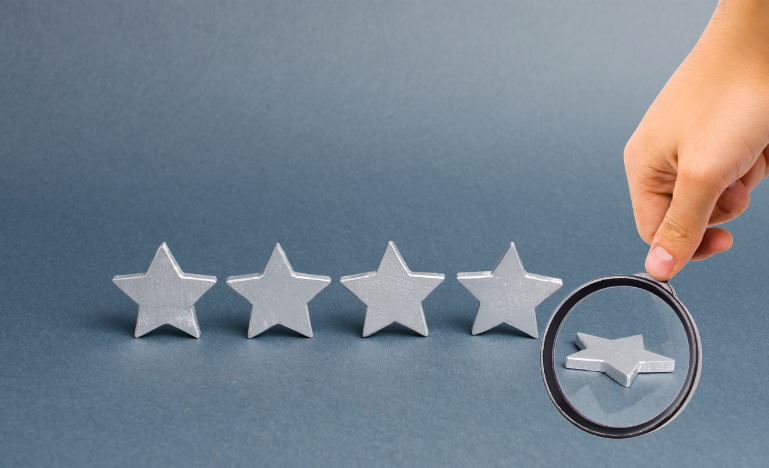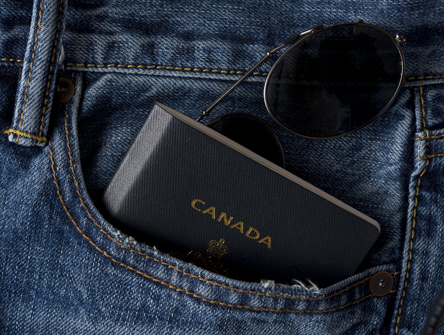Rebuilding a reputation
When something you did in your past trips up your present, how you address it will shape your future reputation.

There is no shortage of ways that something you did in your younger years can come back to haunt you as an adult.
Whether it’s who you chose to associate with, something you said, something you did or perhaps what you wore to a costume party, it can quickly damage or destroy the professional reputation you’ve built for yourself when it comes to light.
Just ask Justin Trudeau.
In September, while on the election campaign trail, the Liberal leader found himself in hot water after TIME magazine published photos of him wearing blackface makeup at an Arabian Nights costume party. They were taken in 2001 while Trudeau was a teacher at a Vancouver school. In days that followed, several similar photos emerged.
The revelations whipped the national media into a frenzy and dominated news coverage. Trudeau moved quickly to apologize, holding an emergency press conference on his campaign plane the night the photos came out. He insisted he "should have known better.”
"I take responsibility for my decision to do that. I shouldn't have done it," he said. "It was something that I didn't think was racist at the time, but now I recognize it was something racist to do and I am deeply sorry.”
He apologized again the next day and stressed he’s not the man he was years ago.
Genuine has to be the go-to
It was the best Trudeau could do in a bad situation. Todd Burke, partner at Gowlings WLG and a member of the firm’s crisis management practice in Ottawa, said the worst thing someone could do is put their head in the sand and not address it. When someone’s reputation is front and centre, they have to be prepared to address past conduct.
“When you genuinely own what you’ve done, I think people are forgiving,” he says. “None of us are perfect. We’ve all made errors. Everyone has shown a lack of judgment at some point.”
Don Newman, the longtime CBC journalist who is now senior counsel at crisis management firm Navigator, agrees the worst thing you can do is nothing.
“You’ve got to get ahead of the story and try to steer the narrative. You’ve got to own the story and have to have your version of events be the one people are debating.”
He says it’s also important to get character references from people who have known you for some time, worked with you and can vouch for you.
In Trudeau’s case, owning up seems to have mitigated the damage. Within days of apologizing, the wall-to-wall news coverage waned.
While there are obviously situations and behaviours that are as reprehensible today as they were 10 or 20 years ago, Newman says it’s often ridiculous to judge past transgressions by today’s standards.
“Whether it’s fair or not, it’s the reality,” Burke says. “And from a crisis management perspective, that’s what you have to deal with.”
Given Trudeau’s access to the press, he can stand before an audience and apologize and there will be interest in that. A lawyer in a similar situation won’t usually have that same access to communicate their message. That makes things more problematic to remedy — but not impossible.
Burke says lawyers who find their reputation in hot water need to have a communication plan. If the behaviour is something that is going to adversely affect their reputation and relationship with clients, they need to pick up the phone, call clients to apologize and have an honest conversation about what they’re hearing in the media or through the legal grapevine.
Having some existing credibility around an issue, such as pro bono work or defending persecuted groups and individuals, is also helpful.
“Your ability to withstand a moment of crisis is sometimes guided by your good deeds in another context,” Burke says. “They can attenuate the perception people have of you and of your mistake.”
But for those individuals who don’t see their conduct as being inappropriate, despite the world looking on objectively and stating that it is, they’re never going to be able to get to a point where they can genuinely remediate their reputation, he adds.
The perils of being too ‘social’
In a world where every meal, thought and encounter is shared on social media, the sheer volume of data and photos out there means the kind of hot water Trudeau found himself in is only going become more common.
“We accept the reality of social media, but at the same time it’s the old adage: 'Would you want to see this on the front page of the Globe and Mail — now or 25 years from now,’” Burke says.
“I don’t think the rule of what you say and do has changed a lot with social media. Yes, it’s more ubiquitous, but the rules of what you say and do and post should follow the same guidelines.”
That’s sage advice, given that nothing ever dies on the internet — at least not in Canada.
“It’s almost impossible to scrub things off social media,” says Prof. Maxwell Cameron, who runs the Summer Institute for Future Legislators at the University of British Columbia.
“I think it’s really problematic. People often do things carelessly, in a moment of haste. They can send something out without thinking about it and then regret it for years. You have to think hard about how it will be perceived in a different context.”
And that’s a big part of what trips people up.
“They may say or do things when they’re very young and immature and not grappling well with a particular set of issues,” Cameron says. “Then maybe five or 10 years later, in a different context, they decide they want to run for office or become a professional in a way that’s visible, and suddenly the thing they’ve said in the past comes back to haunt them.”
There’s education needed around this and given how much time even young kids now spend on social media, Cameron doesn’t think elementary school is too soon to start trying to get them to be aware of it.
“We need to get people in the habit of thinking consciously about what it is they want to project about themselves. How do they want to be seen by other people?”
Case in point: Kyle Kashuv. The survivor of the Parkland shootings had his admission offer revoked by Harvard University earlier this year after racist statements he made on social media came to light.
Some good from the bad
The flip side is that going through situations like this isn’t always completely negative. It’s awful in the throes of it, but Burke says grit and perseverance are sometimes measured by how you respond. In addition to changing a person’s perspective, this has the potential to fundamentally alter the way a person lives their life—from the work they do to the charities they choose to be involved in.
“You have to look at the positive side of a situation. Maybe it’s life-altering for the better. Maybe you find a new calling in life,” he says.


